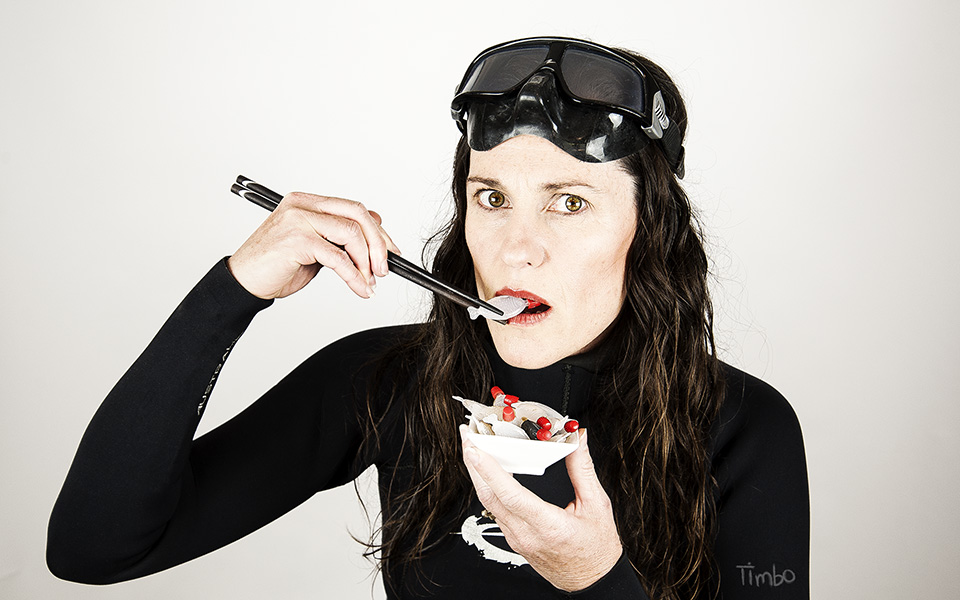
When a whale beaches itself and dies, we treat it as a tragic mystery. We don’t have that blissful luxury with the already dead sperm whale that washed up on a Spanish shore. It’s no mystery as to why the whale died. With 64 lbs (29 kg) of plastic and waste in its stomach, it likely perished from an infection related to its clogged digestive system. It’s hard to eat and pass food when your gut is filled with trash.
I think of this occurrence as a message in a bottle. A warning, not from the past or the future, but the present. The ocean is clearly in trouble now. Its denizens must swim through our plastic trash, seabirds mistakenly feed plastic to their young, and record levels of plastic have been discovered in arctic sea ice. Hell, plastic is now part of the food chain. Do you eat seafood? You’re eating plastic.
My partner, pictured above, wanted to create her own message in a bottle. A way to reach people in far flung places and let them know about the scourge of plastic pollution. To this end, she set up a Facebook page, so she could make posts about plastic. To catch people’s attention, she would tackle the problem ‘upstream’. Her idea was to focus not only on the aftermath of our plastic-addicted lifestyles, but to examine the choices we all make at the source – the supermarket.
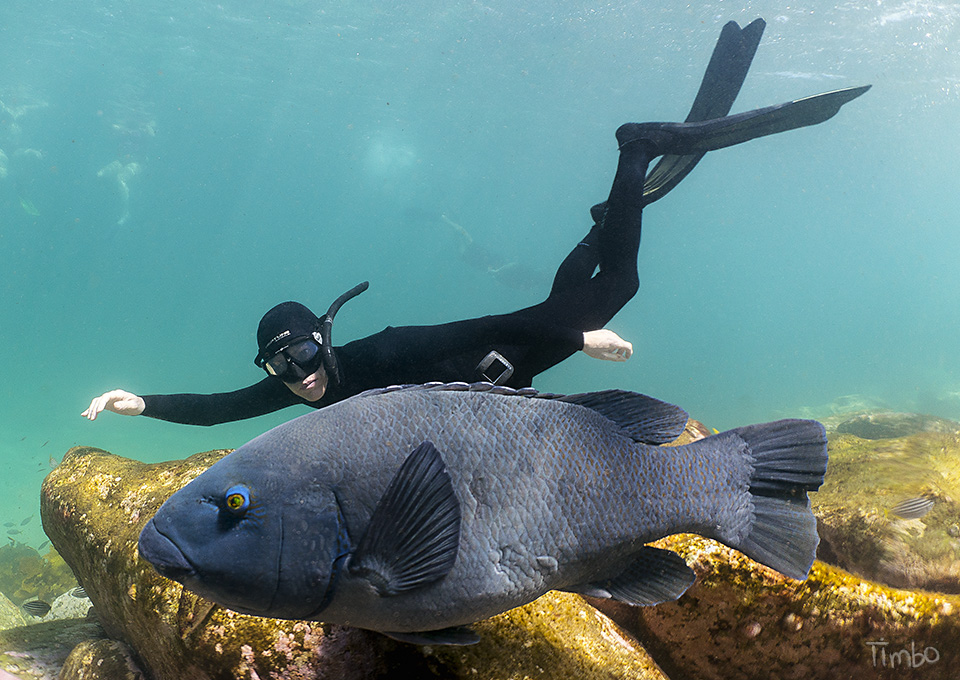
Despite my sympathy, I had doubts as to her chance of success. You see, the social media newsfeeds of any potential audience are now filled with the digital equivalent of plastic pollution – marketing posts from brands. You don’t know it, but there’s an arms race for your attention. The time you spend on social media is viewed as an opportunity for brands to reach and engage with you. And by engage, I mean, win you over with sassy memes and attitude so the brand can sell you shit you don’t need.
Every Tom, Dick, Harry, Apple, Samsung, etc, is trying to market to you, but there’s only so many posts you can see in your Facebook, Instagram, or Twitter newsfeed. It’s simply not possible to see every message from every person or company trying to reach you. Plus, you didn’t create a social media account to see advertising, did you?
No, you don’t want to see ads, but the social media platforms can only make money by selling your attention to advertisers. To circumvent your incalcitrant behaviour, the brands, or agencies working on their behalf, can ‘boost’ posts by paying the social media platforms to place their branded posts in your social media newsfeed. Pay to play – the only way for a brand to get eyeballs on their content.
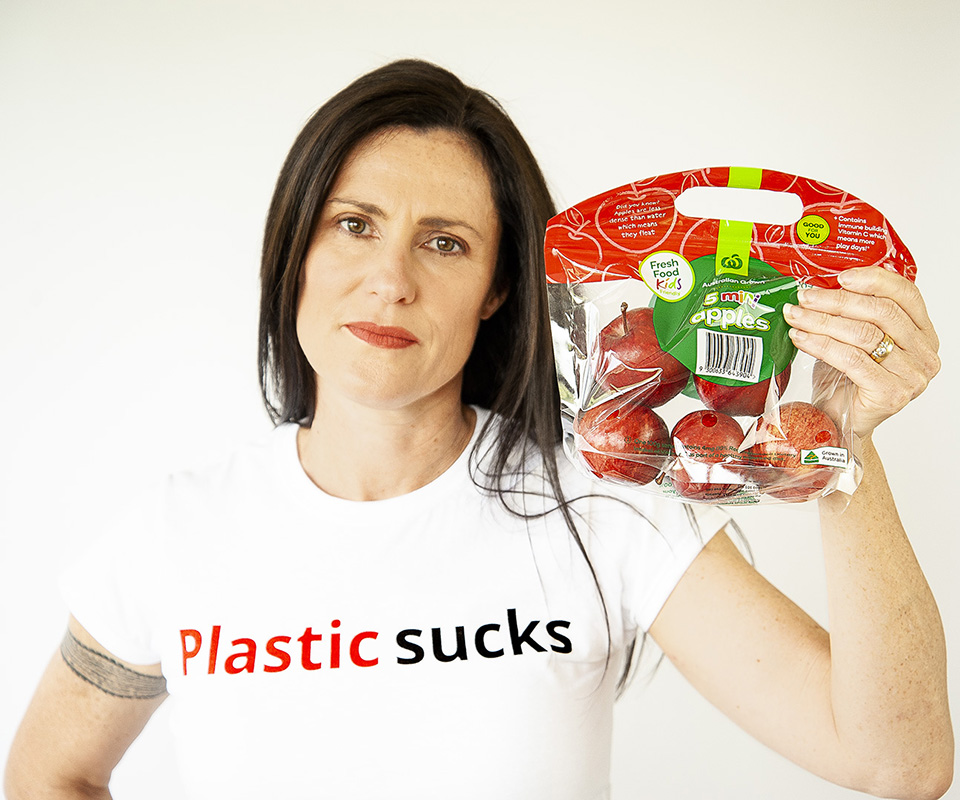
I’m intimately familiar with all this because social media is my day job. And that’s a problem. I know too much, and my knowledge has made me arrogant. After my partner set up her anti-plastic Facebook page, I emphatically told her the only way her page posts would be seen would be if she put paid budget behind them. To clarify, a Facebook page is separate from your personal user page. Your personal posts are shared among your Facebook friends, or friends of friends, depending on your privacy settings. Posts from a page are seen by people who choose to like or follow the page, but this ‘organic’ reach has declined with the proliferation of new pages from businesses. Thus, the need for paid posts. None of this is theory, I know it’s true from direct experience. Without ponying up the dough, how would my partner’s page, her message in a bottle, float above the sea of digital crap?
My partner, Anita, is stubborn. She doesn’t like to believe anything I say, even when I marshal considerable evidence in support of my statements. She powered ahead without me and made awkward posts on her Facebook page about all the plastic packaging filling supermarket shelves. To the trained eye of a social media professional such as myself, her posts looked unprofessional. There were typos, and the images that accompanied her posts seemed laughable. Photos of shopping trolleys, really? I started to nit-pick some of her content, but I realised that I sounded like an asshole, so I stopped. Secretly, I hoped she’d give up. After all, she wasn’t making any money from trying to raise awareness about plastic pollution and she was devoting upwards of twenty hours a week on creating posts.
But… she began to reach people. I knew something extraordinary was happening when Anita showed me the statistics on one of her posts. The post had reached over 2 Million people despite her page only having 5,000 followers. This was ‘organic’ reach, not paid reach. My partner, who knew nothing about social media, was getting results social media professionals, such as myself, could not achieve. At first, I felt deflated. The posts I created for clients in my day job had little chance of reaching that many people. Yet, here was Anita, a novice, creating posts that were being shared to the four corners of the earth.
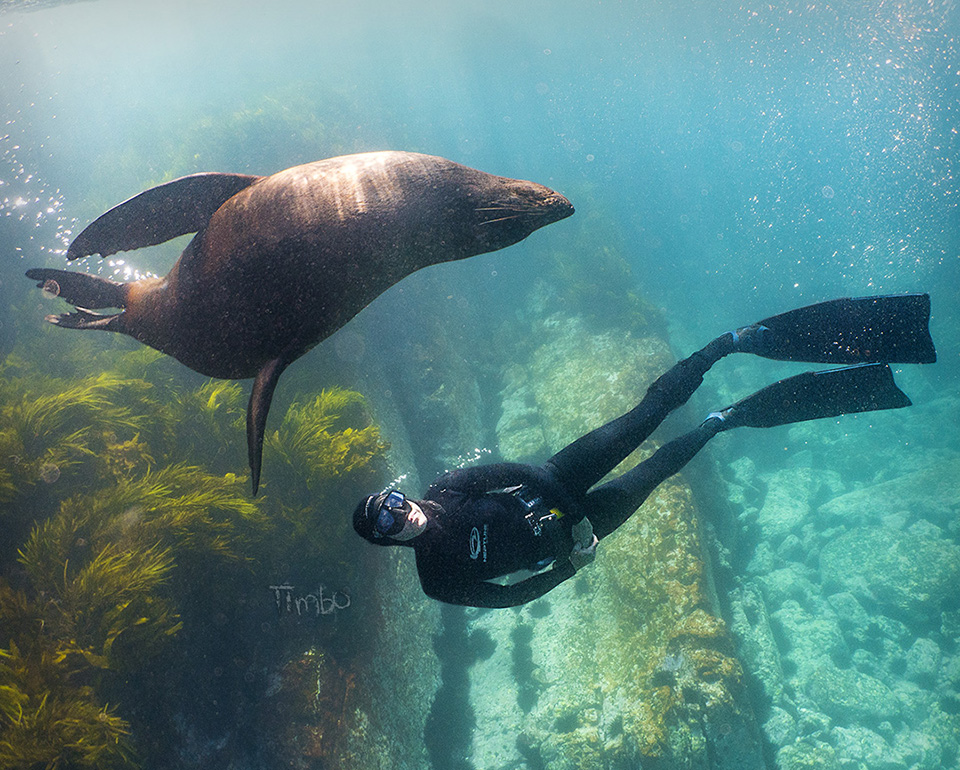
I began to climb out of my funk when the subversive nature of her success sunk in. Brands and the agencies that work for them don’t have a fucking chance. The conventional social media wisdom states brands must pay for their posts to be seen because of declining organic reach. This is only partly true. The full truth is posts from brands and businesses are profoundly uninteresting. Marketers and public relations experts carefully craft brand messages that no one wants to read, let alone believe. However, people who are authentic and have something to say, will find a way to cut through, even when the social media platforms try to limit their reach.
None of the social media advice you’ll read or be told (especially by me) is true. Pay to be heard, post at the right time, use this type of image, use these hashtags, etc. It’s all bullshit. Don’t believe a single word of it unless the person or company giving you advice can show you some big numbers or real-world occurrences that resulted from their social media activity and advice.
My smug disinterest had evaporated into curiosity. What other measures, beyond reach, could be attributed to Anita’s message in a bottle? After a deep, yet brief, dive into her online activity, I discovered the following:
- A group of people in Hong Kong and Ireland were inspired by Anita to set-up their own ‘anti-plastic’ cells and are now focused on the blight of plastic packaging on food.
- A large grocery store in Sydney’s north-west, is now taking steps to eliminate plastic bags from their premises based on Anita’s posts about their store.
- Anita was invited to speak to students at a public high school in Sydney. She spoke to four separate classes over four hours about the problems of plastic pollution and possible solutions.
- Three separate radio stations have interviewed Anita on air about her #PlasticFreeProduce campaign.
- “Shop gremlins,” as one of Anita’s followers refers to them, have been anonymously leaving cards in supermarkets and grocery stores beside plastic bag dispensers. The cards state No bag is required. Food biodegrades, plastic does not.
- One of Anita’s page followers messaged her about their travels. They were in South Africa and just met three people for the first time, who all knew about Anita’s activities! Apparently, Anita is regarded as a mother figure to the group in South Africa.
- A television producer contacted Anita, enquiring about the possibility of working together.
After my brief survey, I was humbled and a little ashamed. The truth is, I was tired of social media and had allowed my own experience of it to cause me to doubt what Anita could achieve. My mea culpa was to build Anita a spiffy new website so her longer posts had somewhere to live (social media posts have a notoriously short shelf life). I also helped her out with some photography to accompany her campaign. Some of these photos are spread throughout my blog post.
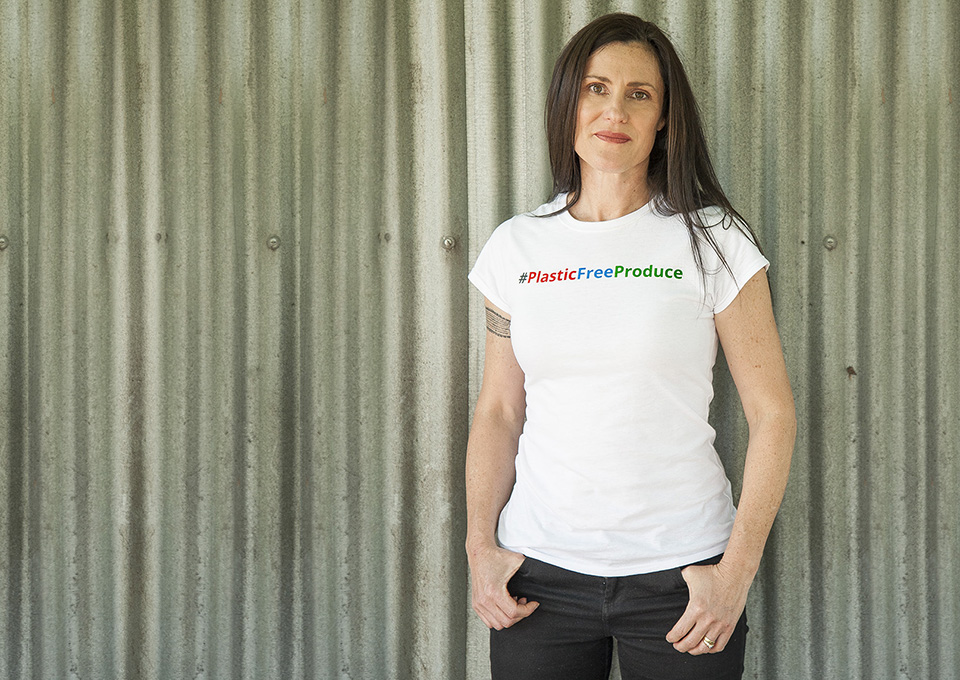
Above all, I want to thank my partner for clarifying how I really feel about social media. I thought I was over it, but what I’d come to dislike was the synthetic, shallow nature of it. What really matters to me is substance. I’m only going to read and keep your message in a bottle if you inspire me to action with your ideas. Anything less, and I’ll toss it back into the sea, along with all the other plastic crap.
You can follow Anita’s #PlasticFreeProduce activity on Facebook, Instagram, Twitter, or her Blog.

so there we are…. nice blog post (except the “F” word 🙂 ) Anita has reached me in the UK… Bravo to her for being brave and to you for being honest 🙂
Thank you David. I wasn’t exaggerating when I said Anita’s posts were being shared to the four corners of the earth. 🙂
Lovely comment David, thank you.
I think you’re a good, good man and a bloody good husband!!! Well done:) It was really enjoyable to read and I liked the perspective you brought to the surface.
Many thanks, Rosanna 🙂
Thank you Tim!!! From experience of both kinds of partners, support goes a long way!!! Now Anita will reach more corners of the earth!!! Love your honesty and photography too. Keep up the positive and constructive feedback x
Thanks for reading, Laura 🙂
Thanks so much for your lovely, positive comment Laura 🙂
For me Anita’s no frills campaign keeps it real, another Mum facing the same everyday challenges who has the courage to take on the major supermarkets. She has my support.
Tricia, Thank you for supporting Anita’s work. I’m blown away by the backing she receives from people such as yourself 🙂
Tim Horan. My partner Barb and I were founding members of Zero Waste Canada. We, like your partner Anita, had no knowledge or experience in social media or web design. But we did know activism and doing, not just talking.
There’s something happening when us non “expert” social media folks are connecting in our awkward happenstance, sometimes accidental kind of way. In a nutshell, I think the trick is “stick-to-itivness” and “consistancy of messaging”. Myself, I’m a truck driver/logger, and have no clue how most of social media works. I just know that for those of us who know the evils of plastics, we are finding one another, building a larger collective, one post, one new “Like” at a time.
You’re a good man for writing this. I sensed your authentic feelings, realizing how your partner got a toe hold in this wacky social media universe.
But as an activist/actionist ourselves, we know that there’ll be ups and downs, mean spirited as well as dedicated supporters who’ll follow and comment and tag Anita.
The producers of plastics, the plast merchants and manufactures and the oil sector have deep deep pockets to buy favour and influence. Yes, we can measure “clicks” but we can’t measure “effectivness” as easily.
If this were a race, the best advice I can give is “this is a marathon….not a sprint”. We have to play the long game, advance, retreat, advance, rethink? I can’t tell you how or why Anita’s posts and efforts found their way into our Zero Waste algorithm, but they did, and we are grateful. Against daunting odds, a rag tag coalition of mostly volunteers are making a difference, on a global level.
I apologize for the long winded reply. I do want to thank you both for speaking the truth about social media and plastics and how can we effectively use these fairly new tools. My advice? “Turn troll lemons into lemonade”!
Buddy, No need for an apology. It sounds like you’re on an amazing journey yourself. I like your term, stick-to-itivness! That attitude can take any of us far, even when strength and smarts fail.
That’s just it.. it’s not about the money. It’s about saving the world.
Where money is involved you can expect superficiality and unenvironmental practises!!
Keep up the good work Anita! #keepthebastardshonest
Thank you Parissa. It’s good to know other people, such as yourself, feel the same way as Anita.
Great read and kudos to you both. Interesting that you’re over the “synthetic” nature of social media. Synthetic alternatives are what got us into this mess in the first place
Carol, You win the comments section 🙂 I’m glad you found that little Easter Egg.
I’m just one 65 year old who happened upon Anita’s page on my crusade to rid my own little world of unnecessary single use plastic … I often find myself being cut down by less informed individuals who leave a path of plastic in their wake …..
Hello Di, Please don’t let the ignorant get you down! Thank you for all that you do.